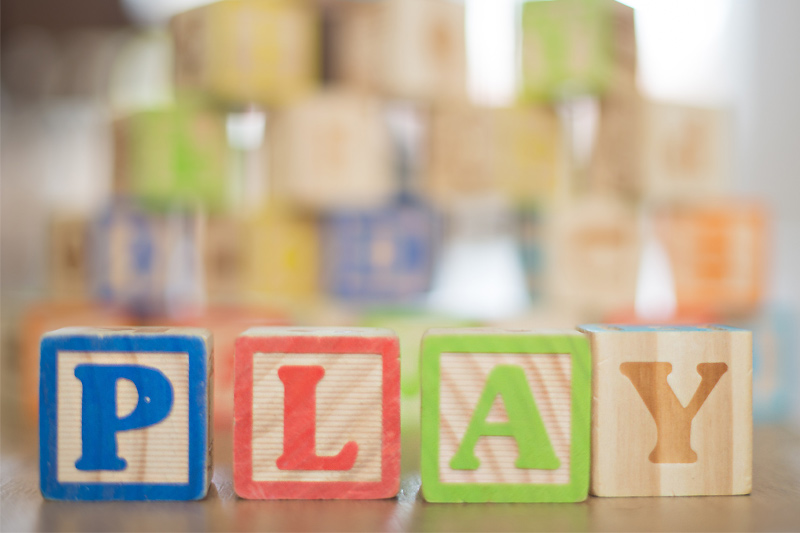Why do humans play? What value does it have? Is supporting a child’s play
important?…….. Play is how children explore their world. Play provides children with the opportunity to engage in social, emotional, physical, language and cognitive experiences. Play is also a critical component of problem solving development. These qualities are needed for optimal childhood development. From infancy into adolescence, humans are continuously processing and engaging through their 5 senses. In fact, play can be the most natural way for humans to experience, grow, develop and interact.
The world is changing quickly. The pace at which we live is ever increasing as technology commands our attention. Financial pressures are mounting while both parents work full time (or more) to make ends meet. This is all
happening while play suffers. Your children may begin to lack the engagement from parents, family and friends necessary to optimize their development and learning. As parents, how can we promote more change? Keep reading….
Building Play Into Our Routines
So how can parents and caregivers be more intentional at carving out more playtime into their children’s lives without it feeling complicated or adding unnecessary stress? Implementing a visual family schedule that outlines the family’s daily routines can be helpful for parents and children. Routines can be part of an organized and predictable home environment as well as a way to intentionally incorporate play into a daily or weekly schedule. Routines help children and teens feel safe and secure. They provide predictability to family life and can also help children cope during developmental changes such as a global event like the Covid-19 pandemic, the birth of a new baby, experiencing divorce, illness or moving homes. Building in structured and unstructured play time can be done without being complicated (so don’t feel overwhelmed!). Creating routines for children through the use of a visual schedule can set out expectations about when and how long activities take place.
Schedules and routines can also help with difficult transitions that often occur when preferred activities come to an end. Scheduling 30-45 minutes of play, depending on the age of the child, on school days, will not only break up screen time but can provide expectations surrounding the amount of technology time that is permitted in a day. Schedules can provide flow and help transition after school time and into the evening routines.
Structured play is the type of play that parents and caregivers plan. Structured play can look like family board game time, baking cookies together, making a craft , taking a family walk, going to swim class, playing catch or reading together. Make it fun!!
Unstructured free time is also very important and is a time where children are free to create, imagine and be independent in their play without adult guidance or direction. This may look like playing playdoh, building Lego, playing dress up or building a fort, or simply exploring the backyard alone or with a friend or siblings.
It is important to remember that play is the language of our children . It offers our children a non-judgmental place and freedom to learn, problem solve, express and process their emotions; all while having some control over their world.
Play is also a great tool to learn social expectations and guidelines. Play gives children opportunities to foster language development as well as gives them permission to play without words by building non-verbal communication skills. Play can help children express their emotions and therefore can become a wonderful tool in
regulating their emotions and bodies when they have “big” feelings such as sadness, fear, joy, excitement, or overwhelm.
Please feel free to reach out for a complimentary 15-20 minute phone consultation if you have questions around your child’s social and emotional development or you are looking for support as a caregiver or parent during these complicated Covid-19 times. My children’s health and wellbeing are very important to me. I look forward to supporting yours.
You May Find the Following Resources Helpful
https://pathways.org/kids-learn-play-6-stages-play-development/
https://raisingchildren.net.au/school-age/play-media-technology/screen-time-healthy-screen-use/healthy-screen-time-6-11-years#2-aim-for-short-screen-time-sessions-nav-title

